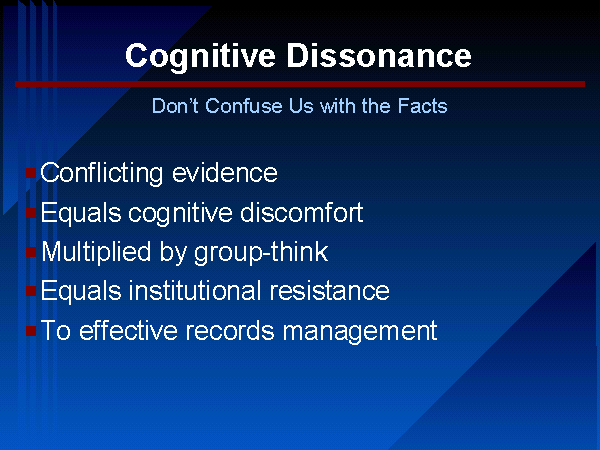





 Notes:
Notes:
As Simmons says, thoughts are easier to change before they become reality. However, that doesn't mean it's easy ... for individuals or for organizations.
Leon Festinger posited the theory of cognifive dissonance, which holds that conflicting evidence causes mental discomfort and induces the individual to shift his or her attitude about one or both of the causes of inconsistency. One implication of the theory is that people will resist exposure to evidence that challenges their deeply held beliefs. Indeed, in their perceptions, they may even filter out or color such evidence so as to support their beliefs. The implications for records management are obvious: Folks don't want to risk leaving evidence lying around that may challenge their tacit knowledge. Multiply that problem by the number of folks in the bureaucracy and the scope of the problem becomes apparent.
Andrews & Baird note that "... negative qualities that commonly lead to groupthink [include] ... Self-censorship by group members, attempting to minimize the importance of any doubts they may have [and] The emergence of self-appointed 'mindguards' ... who protect the group from conflicting information that might shatter their shared complacency." (p. 375)















